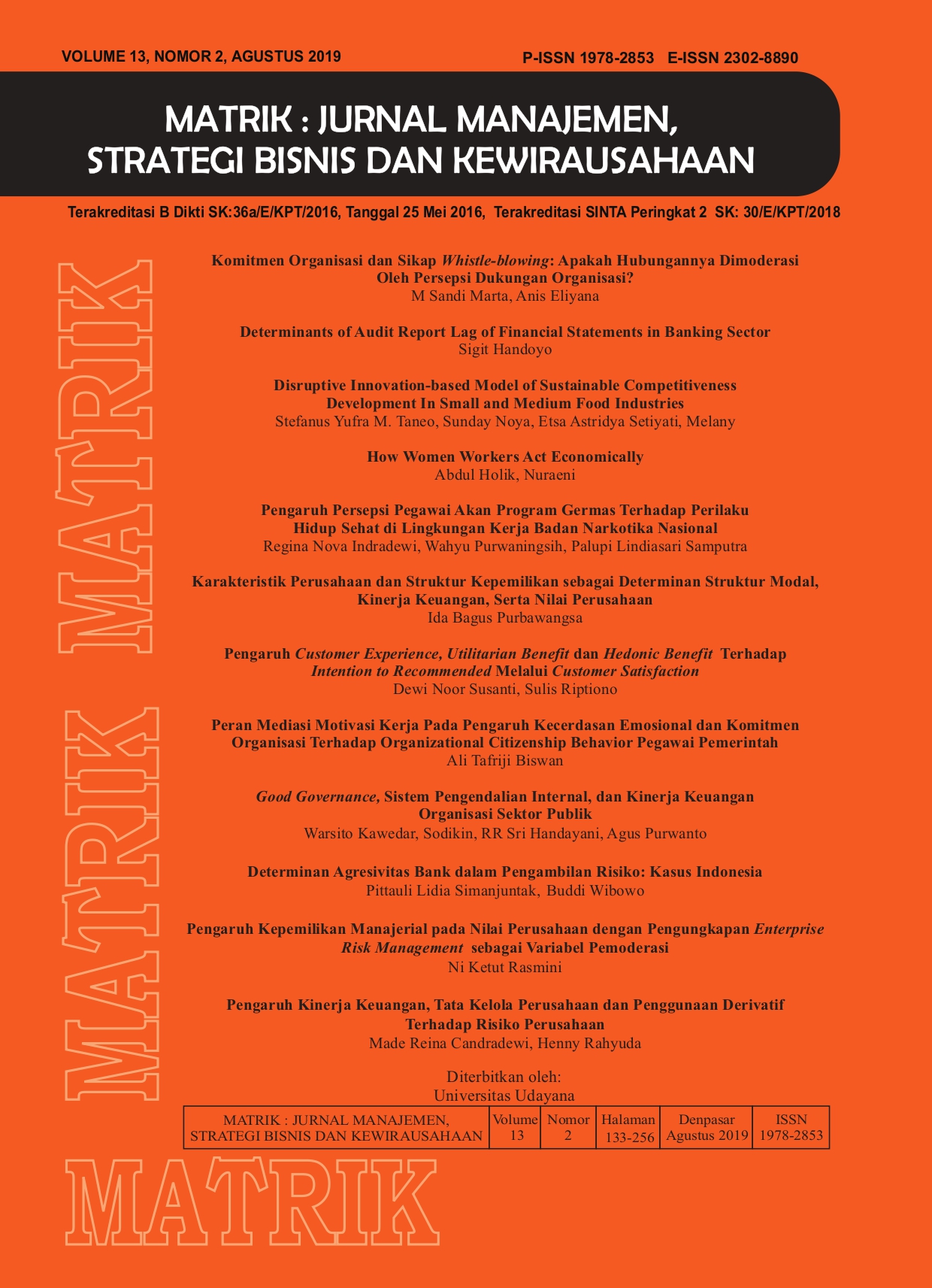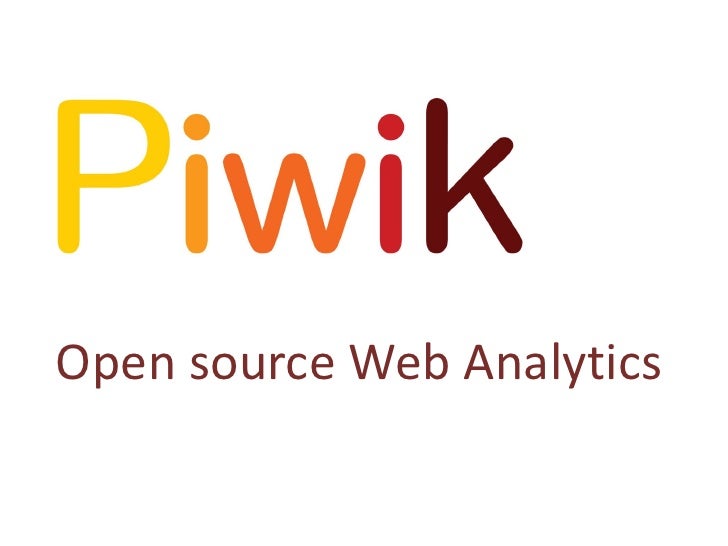Determinants of Audit Report Lag of Financial Statements in Banking Sector
Abstract
Audit Report Lag (ARL) is the time length of the auditor completing their activities on the client is measured from the end of the fiscal year until the date of audit report was signed. Research related to ARL has been widely carried out in some countries, considering the importance of this issue. This study analyzed the factors that affect ARL on the Conventional Bank Companies listed in the Indonesia Stock Exchange. The sample consisted of 84 companies listed in Indonesia Stock Exchange (IDX) which submitted financial reports to OJK (the Financial Service Authority) in the period of 2013-2015. The data used in this research was selected by using purposive sampling method and analysis used multiple linear regression. Based on the analytical results, Profitability, Auditor Opinion, and Firm Reputation had negative significant effect toward ARL. Then Auditor Switching, Complexity, and Board of Size of Director had positive significant effect toward ARL.
Downloads
References
Ahmed, A., & Hossain, M. S. (2010). Audit report lag : A study of the Bangladeshi listed companies. ASA University Review, 4(2), 49–56.
Alkhatib, K., & Marji, Q. (2012). Audit Reports Timeliness: Empirical Evidence from Jordan. Procedia - Social and Behavioral Sciences, 62, 1342–1349. doi: doi.org/10.1016/j.sbspro.2012.09.229
Angruningrum, S., & Wirakusuma, M. G. (2013). Pengaruh Profitabilitas, Leverage, Kompleksitas Operasi, Reputasi KAP dan Komite Audit Pada Audit Delay. E-Jurnal Akuntansi Universitas Udayana, 5(2), 251–270.
Arifa, A. N. (2013). Pengembangan Model Audie Delay dengan Audit Report Lag dan Total Lag. Accounting Analysis Journal, 2(2), 172–181.
Ariyani, N. N. T. D., & Budiartha, I. K. (2014). Kompleksitas Operasi Perusahaan Dan Reputasi Kap Terhadap Audit Report Lag Pada Perusahaan Manufaktur. E-Jurnal Akuntansi Universitas Udayana, 8(2), 217–230.
Austine, O. E., Chijioke, O. M., & Henry, S. A. (2014). Audit Firm Rotation and Audit Report Lag in Nigeria. IOSR Journal of Business and Management (IOSR-JBM), 12(4), 13–19. Retrieved from http://www.iosrjournals.org/iosr-jbm/papers/Vol12-issue4/C01241319.pdf?id=4052
Aziz, A. A., Isa, F., & Abu, M. F. (2014). Audit report lags of Federal Statutory Bodies in Malaysia. International Conference on Economics, Management and Development, 73–78.
Berliana, R. (2015). The Effect of Workload, Auditor Tenure, Specialist Auditor and Public Accounting Firm Size on Audit Report Lag. Economic and Business Faculty of Jenderal Soedirman University Journal, 1–30.
Carslaw, C. a. P. N., & Kaplan, S. E. (1991). An Examination of Audit Delay: Further Evidence from New Zealand. Accounting and Business Research, 22(85), 21–32. doi: doi.org/10.1080/00014788.1991.9729414
Dimitropoulos, P. E., & Asteriou, D. (2010). The effect of board composition on the informativeness and quality of annual earnings: Empirical evidence from Greece. Research in International Business and Finance, 24(2), 190–205. doi: doi.org/10.1016/j.ribaf.2009.12.001
FASB. (2008). Statement of Financial Accounting Concepts No. 2 - Qualitative Characteristics of Accounting Information. FASB Concepts Statements, (2), 0.
Ghozali, I. (2013). Aplikasi Analisis Multivariate dengan progrma IBM SPSS 21. Semarang.
Ghozali, I., & Sari, R. R. (2014). Faktor-Faktor Pengaruh Audit Report Lag (Kajian Empiris Pada Perusahaan manufaktur Yang Terdaftar Di Bursa Efek IndonesiaTahun 2010-2012). Diponegoro Journal Of Accounting, 3(2).
Hariza, J. A., Wahyuni, N. I., & Maria W, S. (2012). Faktor-Faktor yang Berpengaruh terhadap Audit Report Lag (Studi Empiris pada Emiten Industri Keuangan di BEI). Jurnal Akuntansi Universitas Jember, 10(2), 30–47.
IASB. (2008). International Financial Reporting Standards (IFRSs) 2008 (including International Accounting Standards (IASs) and Interpretations as at 1st January 2008). International Accounting Standards Board (IASB). Retrieved from http://www.iasb.org
Knechel, W. Robert., & Payne, J. (2001). Additional evidence on audit report lags. Auditing: A Journal of Practice & Theory, 20(1), 137–146. doi: doi.org/10.2308/aud.2001.20.1.137
Lee, H. Y., & Jahng, G. J. (2008). Determinants of audit report lag: Evidence from Korea - An examination of auditor-related factors. Journal of Applied Business Research, 24(2), 27–44.
Li, Y., Zhang, D., & Wang, X. (2014). The Influence of Corporation Governance Structure on Internal Control Audit Report Lag: Evidence from China. Accounting & Taxation, 6(2), 101–115. Retrieved from http://search.proquest.com/openview/5ec15bdcccb5b6b00fc6ce62b4c2c985/1?pq-origsite=gscholar
Mak, Y., & Li, Y. (2001). Determinants of corporate ownership and board structure: evidence from Singapore. Journal of Corporate Finance, 7(3), 235–256. doi: doi.org/10.1016/S0929-1199(01)00021-9
Maria, A. (2012). Analisis Faktor-Faktor yang Berpengaruh terhadap Audit Delay pada Perusahaan Consumer Goods di Bursa Efek Indonesia. Jurnal Universitas Gunadarma.
Mohamad-Nor, M. N., Rohami, S., & Wan-Hussin, W. N. (2010). Corporate governance and audit report lag in Malaysia. Asian Academy of Management Journal of Accounting and Finance, 6(2), 57–84.
Ofuan James, I., & Christian, I. (2014). Corporate Governance and Audit Report Lag in Nigeria. International Journal of Humanities and Social Science, 4(13), 172–180.
Permatasari, A., & Widuri, R. (2013). Faktor – Faktor yang Mempengaruhi Audit Report Lag (Studi Empiris Pada Perusahaan Pertambangan yang Terdaftar di Bursa Efek Indonesia Tahun 2011- 2013), Jurnal Universitas Bina Nusantara.
Petronila, T. A. (2007). Analisis pengaruh skala perusahaan, profitabilitas, kap, opini audit, pos luar biasa dan umur perusahaan terhadap audit delay : studi empiris pada bursa efek jakarta tahun 2003. Jurnal Akuntabilitas, 6(2), 129–141.
Putra, A. B. S., & Sukirman. (2014). Opini Auditor, Laba atau Rugi Tahun Berjalan, Auditor Switching dalam Memprediksi Audit Delay. Accounting Analysis Journal, 3(2), 187–193.
Rustiarini, N. W., & Sugiarti, N. W. M. (2013). Pengaruh karakteristik auditor, opini audit, audit tenure, pergantian auditor pada audit delay. Jurnal Ilmiah Akuntansi Dan Humanika, 2(2), 657–675. doi: doi.org/ 10.1017/ CBO9781107415324.004
Tambunan, P. U. (2014). Pengaruh Opini Audit, Pergantian Auditor dan Ukuran Kantor Akuntan Publik terhadap Audit Report Lag (Studi Empiris pada Perusahaan Manufaktur yang Terdaftar di Bursa Efek Indonesia). Jurnal Akuntansi Universitas Negeri Padang, 3(1).
Vuko, T., & Cular, M. (2014). Finding determinants of audit delay by pooled OLS regression analysis. Croatian Operational Research Review, 5, 81–91.
Wibowo, A. C. (2012). Analisis Faktor-Faktor yang Mempengaruhi Total Lag Publikasi Laporan Keuangan Sebagai Indikasi Kepatuhan Terhadap Pihak Regulator (Studi Empiris Keberadaan Komite Audit dan Proporsi Komisaris Independen). Efektif Jurnal Bisnis Dan Ekonomi, 3(2), 111–122.
Xie, B., III, W. D., & DaDalt, P. (2003). Earnings management and corporate governance: the role of the board and the audit committee. Journal of Corporate Finance, 9(3). Retrieved from http://www.sciencedirect.com/ science/article/pii/S092911990200006
 This work is licensed under a Creative Commons Attribution-ShareAlike 4.0 International License.
This work is licensed under a Creative Commons Attribution-ShareAlike 4.0 International License.

















